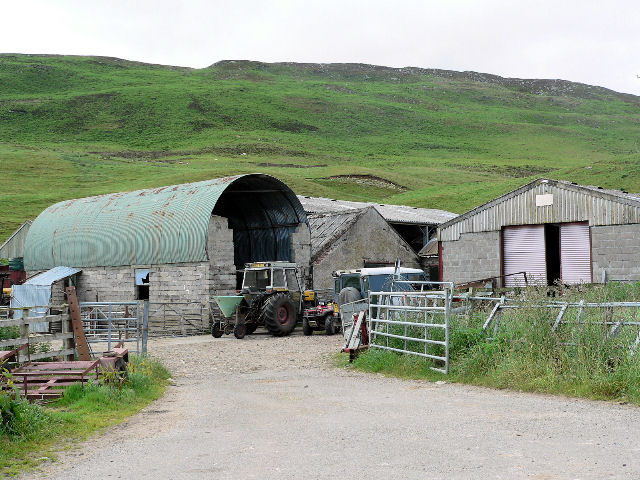Reviewing your Farm Lease or Tenancy Agreement – How Butcher & Barlow Can Assist
Mike Bracegirdle, Head of our Legal 500 listed Agriculture Department, considers the importance of reviewing farm leases and tenancy agreements, and how  Butcher & Barlow are able to assist you in the event of a dispute, or with modifications to your current agreement.
Butcher & Barlow are able to assist you in the event of a dispute, or with modifications to your current agreement.
As a working farmer you may not be familiar with every term of your tenancy agreement. However, you will potentially be aware that it is very likely to contain a number of restrictions as to what you can and cannot do on the land. A certain number of these restrictions may relate to only being able to undertake a particular farming activity i.e. dairy enterprise, or alternatively restricting you in relation to what crops can be grown.
In the past, there may have been a good reason for stipulating the precise nature of the farm; but they may no longer be relevant in today’s environment. Furthermore, many older agreements may not have envisaged the introduction of environmental schemes, and as such not make any provision within the tenancy agreements for this. In certain cases, they can potentially exclude the tenant from such schemes.
The Agricultural Tenancy Consultation currently being undertaken by DEFRA devoted a section to the facilitation of productivity, investment and environmental improvements. One aspect of that section related to the issue of restrictive covenants within Agricultural Holdings Act (AHA) tenancies and in particular the potential impact upon productivity.
The consultation contained a proposal whereby any 1986 Act tenant could refer such a restriction to dispute resolution and, if successful, the tenancy could be varied to take account of this.
Given the uncertainties in the agricultural industry at the moment, this seems a very sensible way forward for both tenants and their landlords.
The ability for tenants to flex the use of the land appears to be a common sense approach to the industry’s productivity issue. Such abilities include: full and efficient farming, improving agricultural productivity, securing environmental improvements and enabling access to environmental and management schemes. At this stage however, only time will tell whether or not this proposal is put into effect.
A number of tenancy agreements contain blanket restrictions on non-agricultural activities. Whilst the ability to diversify has been open to owner-occupiers, it is less common for agricultural tenants. This issue was discussed 17 years ago in the Tenancy Reform Industry Group and at that stage it was felt that there was insufficient evidence to justify legislative changes that would in effect give a tenant a statutory right to diversify.
A compromise named the Code of Good Practice was adopted for agri-environmental schemes and diversification projects within agricultural tenancies. This was applicable to both AHA tenancies and Farm Business Tenancies (FBT). The idea behind the compromise was that well researched, well thought out, and fully funded applications were more likely to be approved by the landowners.
Linked to the code set out above was an adjudication process. Although the Code was never fully implemented due to the funding for the process being removed before it would be established, it does provide a framework for tenants to adopt when seeking consent to diversify from the land owner.
If their case is properly illustrated, the tenants should not then have to resource to “forcing” the issue through dispute resolution and a good working relationship should provide the right environment for a productive discussion.
Butcher & Barlow work closely with a number of agricultural advisors and would be happy to assist any tenant in putting forward proposals to their landlord for consent to diversify (if required) by modification of their AHA or FBT agreement.
In deed, most FBTs can be drafted in such a way that non-agricultural activities can be permitted without jeopardising the FBT status (which is a major concern for most land owners). If the parties can agree specific diversification clauses and link them to bespoke rent review provisions, this could then link the rent for non-agricultural enterprise to tur over profit or other factors. This could be useful not only for the tenant, but also for the landlord.
Whilst for some tenants there is a temptation to ignore the tenancy agreement and pursue the diversification regardless, it could be fraught with difficulties if the landlord seeks to enforce the terms of the tenancy agreement. Consequently, the tenant would always be on the “back foot”.
For 1986 Act tenants, the entire tenancy can be put at risk. This may involve the service of a notice to remedy and a resulting notice to quit if the tenant does not comply. Alternatively, this could involve a notice to quit based on an irremediable breach where there has been unauthorised sub-letting.
If you are a tenant on the receiving end of a notice or enforcement action being taken by your landlord, or you are a landlord contemplating taking enforcement action, Butcher & Barlow are able to assist. Butcher & Barlow’s Agriculture Department works closely with our Property Dispute Team to provide you with straightforward expert advice in such circumstances.
Our Agriculture Team would be happy to provide advice to both landlord and tenants on the provisions contained within the prospective agreements either AHA or FBT. In the event that litigation is contemplated, we are able to set up a meeting with the Property Dispute Team and Agricultural Team to provide advice prior to litigation being entered into.
If you would like to speak with a member of our team regarding an agricultural litigation matter, contact our Gadbrook Park office on 01606 334 309.

Mike Bracegirdle